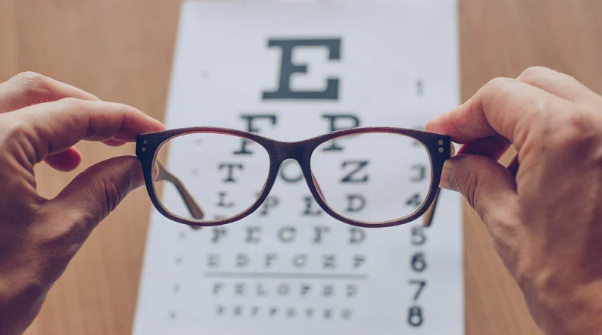Seeing is vital, but sometimes things go awry, causing problems with our vision. This article looks at common issues like myopia, presbyopia, hyperopia, and astigmatism, explaining what causes them and how they can be treated
Myopia (Nearsightedness)
Myopia, also known as nearsightedness, is a vision impairment where distant objects appear blurry while close objects are seen clearly. This is typically due to either the elongation of the eyeball or a curvature of the cornea, resulting in light focusing in front of the retina instead of on it. Common symptoms include blurry vision at a distance, squinting, headaches, and eye strain.
Correction: Myopia can be addressed through a variety of lens options, including eyeglasses and contact lenses. Popular contact lenses for nearsightedness include monthly options like Biofinity, as well as daily choices like Dailies Total 1 and Dailies AquaComfort
Presbyopia
Presbyopia is an age-related vision problem where the lens in the eye loses its flexibility, making it difficult to focus on near objects. This is a natural part of aging and usually affects individuals over the age of 40. Symptoms include difficulty reading or focusing on close objects, holding objects further away to see them clearly, and headaches.
Correction: Presbyopia can be corrected with various types of reading glasses, progressive eyeglasses, or multifocal contact lenses. Progressive eyeglasses have a gradual transition between vision correction for distance, intermediate, and near, making them ideal for individuals with presbyopia.
Multifocal contact lenses also provide correction for multiple distances and can be a convenient option for those who prefer contact lenses. Presbyopia can be corrected using a variety of lenses, including monthly options such as Biofinity Multifocal or SofLens Multifocal, as well as daily alternatives like Acuvue Moist Multifocal.
Hyperopia (Farsightedness)
Hyperopia, or farsightedness, is a vision impairment where close objects appear blurry while distant objects are seen clearly. This is because light focuses behind the retina instead of on it, which may be due to a too-short eyeball or a too-flat cornea.
Correction: Farsightedness can be corrected with various types of lenses, including eyeglasses and contact lenses. Popular choices include daily disposable lenses like Proclear 1 Day, as well as monthly options such as Biofinity and Acuvue Oasys.
Astigmatism
Astigmatism is a vision impairment where the cornea or lens is not perfectly shaped, resulting in distorted vision. This can cause blurry vision at both near and far distances, as well as symptoms such as eye strain and headaches.
Correction: Astigmatism can be corrected with specialized contact lenses known as toric contact lenses, designed specifically to address the irregular shape of the cornea or lens. Popular options include daily lenses like Dailies AquaComfort Plus Toric, Myday Toric, or 1 Day Acuvue Moist for Astigmatism. Alternatively, if you prefer monthly contacts, Biofinity Toric and Soflens Toric are popular choices.
Color Blindness
Color blindness is a vision impairment where a person has difficulty seeing certain colors or distinguishing between them. This can be either congenital or acquired and can affect everyday activities such as driving or distinguishing between traffic lights.
Correction: Color blindness is typically not directly correctable with lenses. However, some special glasses or filter lenses can be used to improve color perception for some individuals with color blindness. It is important to note that these glasses do not cure color blindness but can only improve color perception to some extent.
Additional Correction Options:
In addition to the correction methods mentioned above, there are other options for vision correction, such as:
- LASIK surgery: A laser procedure that reshapes the cornea to improve vision.
- PRK surgery: Another laser procedure that removes the top layer of the cornea and reshapes it.
- Implantable lenses: Lenses that are implanted inside the eye to improve vision.
Which correction option is best for you will depend on your individual needs and preferences. Be sure to consult with an eye doctor to discuss your options and find the best solution for you.
Note: This information is for general knowledge only and should not be considered a substitute for professional medical advice. Always consult with an eye doctor for personalized diagnosis and treatment of vision problems.
